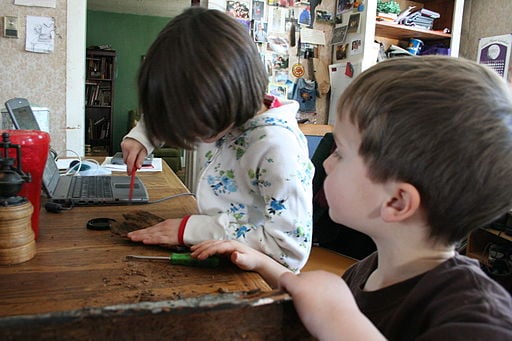 I’ve been thinking about race lately.
I’ve been thinking about race lately.
Actually, I think about race a lot. Just ask Kevin, a young White man who works for me as an AmericaCorp volunteer. In his final reflection paper, Kevin was asked to sum up what he had learned having worked for two years running a variety of youth programming at our church. He said essentially, “What I learned this year was not to say anything about race to Tara. If you do, she’ll give you a hard time and follow it up with an email that has really long articles attached.”
So, no, it’s not new. But I’m reading Nurture Shock, and chapter 3, called Why White Parents Don’t Talk About Race, got me thinking about what we say, and don’t say, to the boys about race. Considering how much I think about race, it’s surprising how little I’ve shared with the boys. Why?
When Zach started pre-school and I asked him who he liked to play with, he pointed at two boys and shouted, “I like to play with the black boys the best! But the black boys get in a lot of trouble.” I rushed him away from the playground and hoped no one had heard. The next day, when he pointed at one of the same boys and said that he had a great time playing with the “blue boy,” I realized that he was referring to the color of their t-shirts and not their skin. I never mentioned race or skin tone, and I hoped his color classification system would disappear as he learned their names.
Then there was the time Ezra was telling everyone that Jeff and I were voting for Barakobama because John McCain was on “Satan’s team.” Which is of course not a category we would use. We never even said anything bad about McCain. But in Ezra’s world, if we were for Barakobama, then the other guy must be evil. Which isn’t about race, but is about the boys’ developmental level. And I was afraid that if we started to highlight racial differences at that age, the boys would use those differences when sorting all people into the good guy & bad guy camps they had created.
It turns out we didn’t need to worry; they were going to do that anyway. The authors of Nurture Shock say that kids naturally categorize people based on skin color, even when we don’t talk about it with them. And if we don’t talk about it, kids will put people who look like them in the good guy camp and all others in the bad guy camp. It takes explicit conversation to break this pattern down, explicit conversation that we didn’t have with them until recently.
Even worse, the book says that going to school with kids of different races tends to exacerbate the good guys/bad guys break down. Without explicit conversation, exposure to diversity, the kind of diversity that attracted us to their former school, can be harmful to racial attitudes.
As they’ve gotten older, we’ve talked more about race, and especially about racism. But I wonder if we waited too late. What ugly racial attitudes are lurking below the surface now? And how we will work to eradicate them?
They’re still too young to email them an article, right?











